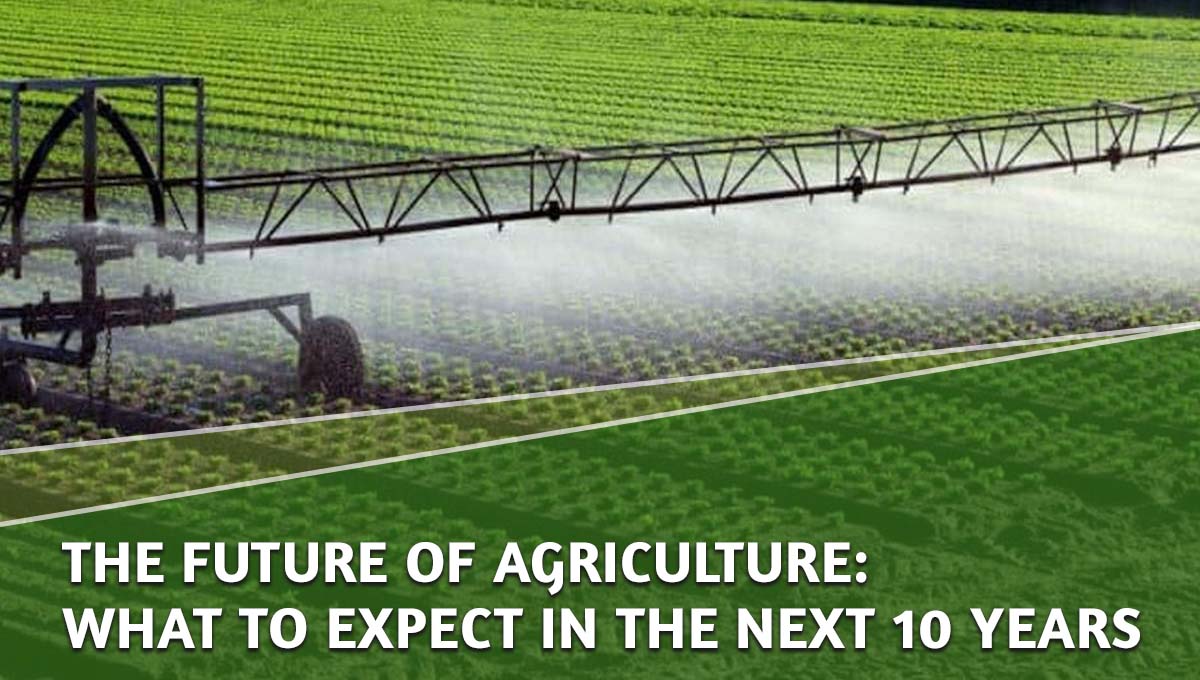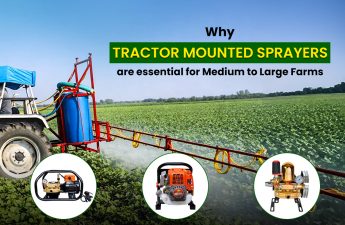Agriculture has been a crucial part of human existence for thousands of years but has never stopped evolving. The agricultural industry evolves with changes in climate and society. As we begin a new decade, the sector is on the verge of a transformation fueled by advances in different fields. Padgilwar Corporation, the leading agricultural product manufacturer in Pune, assists farmers with various tools and machinery to make their tasks easy and less time-consuming. Besides, we also update farmers with trends in farming. This blog will examine some exciting developments and trends expected to shape agriculture’s future in the next ten years.
Precision Farming and Smart Technology
One of the most significant changes in agriculture will be the widespread adoption of precision farming and smart technology. These innovations use artificial intelligence, the Internet of Things (IoT), and data analytics to optimise agricultural processes. Drones, autonomous machinery, and sensor networks will be critical in monitoring crop health, soil conditions, and water usage. Precision farming will allow farmers to make data-driven decisions, resulting in higher yields, reduced waste, and increased sustainability.
Using Controlled Environment Agriculture (CEA) and Vertical Farming
Vertical farming and controlled environment agriculture will gain traction in response to the rising global population and limited arable land. Crops are grown in vertically stacked layers or controlled indoor environments. Vertical farms save space and use fewer pesticides and less water. As technology advances, these systems will become more efficient and affordable, making them a viable option for urban areas and climate-sensitive regions.
Climate-Resilient Crops
Climate change is a major threat to global agriculture, but researchers and breeders are working hard to develop climate-resilient crops. These new cultivars intend to withstand extreme weather conditions, such as droughts, floods, and heat waves. Scientists will be able to introduce desirable traits into crops more quickly thanks to genetic engineering and advanced breeding techniques, improving their ability to adapt to changing climates and ensuring food security.
Artificial Intelligence (AI) in Agriculture
From planting to harvesting, artificial intelligence will revolutionise various aspects of farming. AI-powered algorithms will analyse massive amounts of data to plan planting schedules, predict disease outbreaks, and manage pests. AI-enabled autonomous machinery will perform tasks with precision, reducing the need for manual labour and increasing overall productivity.
The Advancement of Biotechnology
Biotechnology will impact agriculture by addressing nutrition, disease resistance, and resource efficiency issues. GMOs will continue to be a source of contention, but as public acceptance grows, we expect to see more GMO crops with higher yields and nutritional value.
Blockchain for Traceability
Consumers are becoming conscious of the food products they consume. They demand transparency in the food supply chain resulting in the implementation of blockchain technology in the food supply chain. Blockchain allows for secure and decentralised record-keeping, making it easier to track agricultural products from farm to consumer. This level of traceability will improve food safety, reduce fraud, and strengthen relationships between farmers and consumers.
Sustainable Farming Practises
In the agricultural industry, sustainability will continue to be a top priority. Farmers will increasingly use regenerative agriculture practices to improve soil health, sequester carbon, and reduce environmental impact. Agroforestry and organic farming methods will also gain popularity, promoting biodiversity and ecosystem resilience.
Robotics and Automation
Harvesting, weeding, and pruning will be replaced by robots. These robots will be programmed to work autonomously, resulting in increased efficiency and lower labour costs. Automation will also extend to packaging and distribution, streamlining the entire supply chain. It will gain prominence, promoting biodiversity and ecosystem resilience.
Conclusion
Agriculture’s future is undeniably exciting, with technology propelling the industry towards greater efficiency, sustainability, and productivity. Over the next ten years, we can expect to see the global integration of AI, smart technology, and precision farming. Climate-resilient crops and biotechnology will be critical in ensuring food security for an expanding population, while sustainable practices will protect our planet’s natural resources. By embracing innovation and collaboration, the agriculture sector can lead to a brighter, more food-secure future.
To know more about trends and development in agriculture, stay connected with Padcorp.



